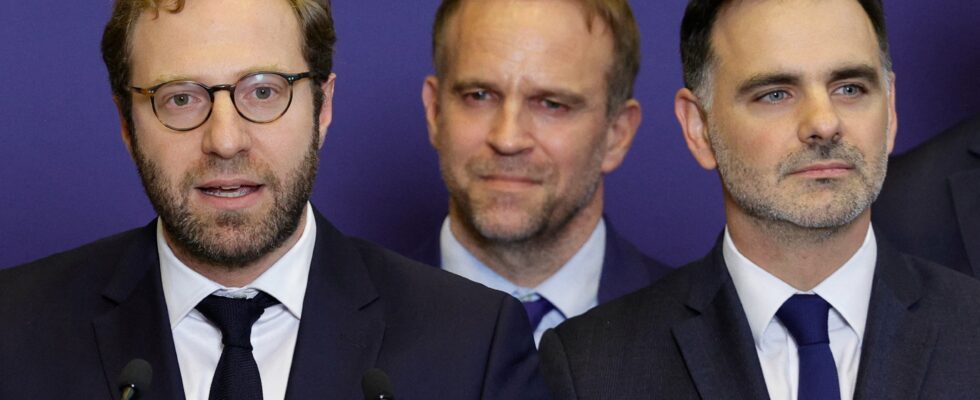Behind schedule, the government will present the draft budget for 2025 “the week of October 9”, focusing “primarily” on lower spending to reduce France’s heavy public deficit, which could exceed 6% of GDP this year, worse than expected and far from Brussels’ expectations.
“I confirm that the week of October 9 will be the week of the submission of the draft finance bill for 2025,” declared the new Budget Minister Laurent Saint-Martin before the Finance Committee of the National Assembly on Wednesday, September 20. The draft budget for social security will be presented the same week. Delayed by the dissolution of the National Assembly in June and the late appointment of a Prime Minister by President Emmanuel Macron in September, the preparation of the next budget promises to be particularly complex this year given the poor health of public finances.
“Yes, the situation of our public finances is serious, and I won’t beat around the bush: in 2024, the public deficit risks exceeding 6% of GDP, according to the latest estimates we have,” said Laurent Saint-Martin. This is much worse than the 5.1% of GDP deficit that the outgoing government was counting on and well above the 3% threshold set by the European Union. To get back on track, “we will have to make significant collective efforts,” warned the minister from the presidential camp, pledging to “speak truthfully” and promote “dialogue” with Parliament on this issue.
“Tax justice”
The balance between spending cuts and additional tax revenues is likely to be very difficult to find, as France, along with six other eurozone countries, is already the target of an excessive deficit procedure by the European Commission. The restoration of public accounts will “priority” involve a reduction in spending, explained Laurent Saint-Martin, saying he is open to a debate on a tax increase “if and only if it responds to a problem of tax justice”. He does not rule out reviewing the amount of 492 billion euros of spending mentioned in the previous government’s draft 2025 budget and, for 2024, cancelling all or part of the 16.5 billion euros of frozen credits. He rules out a “generalized tax increase”, because “we are not touching modest people and the working and middle classes”.
Prime Minister Michel Barnier had mentioned on Sunday possible tax increases targeted at the wealthiest taxpayers and large companies, breaking the taboo in force since Emmanuel Macron’s arrival at the Elysée.
Laurent Saint-Martin detailed the two “main reasons” for the massive slippage in the public deficit in 2024: first, “lower” tax revenues than expected. A gap that he attributes to the fact that growth was driven more by exports than by consumption, generating less VAT. He also pointed out “the wait-and-see attitude of economic players in recent months”, emphasizing: “less activity means less revenue”. Already penalized by the rise in interest rates, companies in particular suspended many investments and hiring this summer while waiting to find out which Prime Minister would succeed Gabriel Attal. The minister also mentioned local government spending, “higher than the trajectory predicted, in the order of 16 billion euros for 2024”.
“Massive spending”
More generally, Laurent Saint-Martin defended Emmanuel Macron’s supply-side policy and blamed France’s poor financial health on the “massive, record public spending to respond to the crises” of Covid and inflation. Michel Barnier will present the preferred paths to redress the accounts on October 1 during his general policy speech, his first political test before Parliament before the budget speech.
Before the Finance Committee of the Assembly, the Minister of the Economy Antoine Armand revealed that France had obtained from Brussels an extension until October 31 to present its multi-year trajectory of public finances. The initial deadline was September 20. “My mission is to maintain a bond of trust with our partners and to present them with an economic and financial trajectory that is sustainable, coherent and credible,” he declared. He also estimated that French growth would reach around 1.1% this year, slightly above the outgoing government’s forecast of 1%.
